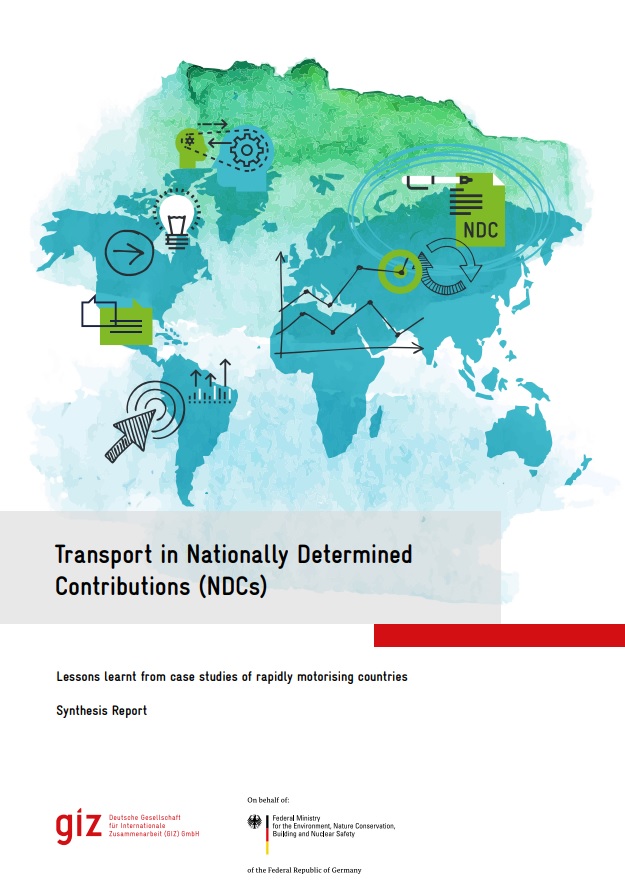Overview
In preparation for the COP21 Paris Climate Conference in December 2015, more than 160 countries submitted their Intended Nationally Determined Contributions (INDCs) to reduce greenhouse gas (GHG) emissions and increase resilience.
A high level analysis of the NDC documents carried out by GIZ showed that transport has been recognized as a sector of key relevance for climate change. Due to the limited level of information provided in the official NDC documents, a more in-depth analysis at the country level is needed to be able to assess the role of transport in the NDC development and implementation process. To gain such insight for the transport sector in rapidly-motorising countries, seven case studies were carried out in the following countries: Bangladesh, Colombia, Georgia, Kenya, Nigeria, Peru and Vietnam. Data for the analysis was gathered through literature research and stakeholder interviews and complemented by experiences from GIZ’s and Ricardo’s day-to-day work in countries.
Whilst the situation for the first INDC development was unique, the analysis of the INDC development process helped identify lessons learnt that are relevant for the future steps in the NDC cycle. A particular focus of the analysis was the identification of factors limiting ambition in the first round of NDCs.
Four key lessons learnt are:
- Lack of transport data limits the sectoral ambition
- Buy-in from key transport actors is essential for ambitious sector targets
- NDC should be more closely linked with transport sector strategies
- Transport authorities need more climate change expertise
Based on the identified challenges and lessons learnt from the INDC development process, a range of recommendations were developed, aimed at different target groups.
For all recommendations, the NDC timeline has to be considered and timings developed accordingly. More specifically, the NDC timeline can be broken down into three iterative process steps, which partly run in parallel: (1) Preparation of the NDC groundwork, (2) development and negotiation of the NDC, and (3) NDC implementation
and integration in sectoral policies. The figure below illustrates this repeating cycle.
Contents
- Introduction
- Overview of the transport sector in NDCs
- Lessons learned from case studies
- Recommendations for sectoral integration
- Outlook on raising ambition of NDCs



